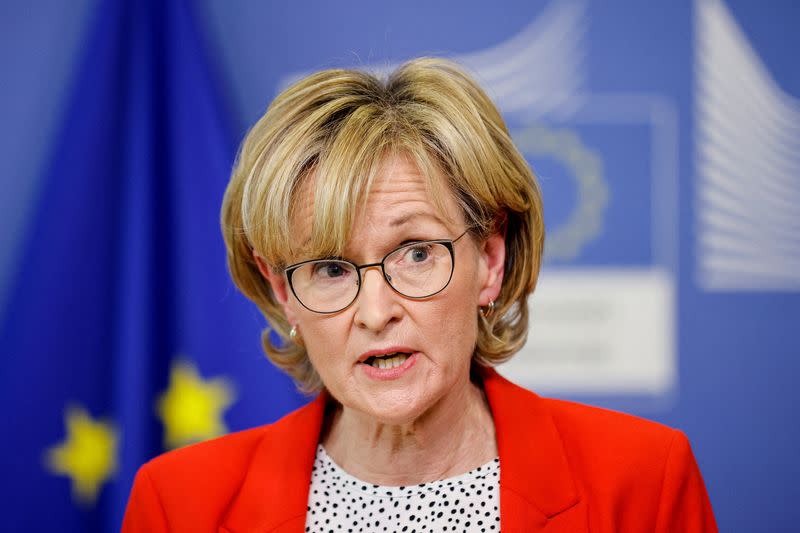EU financial services chief favours banning sales inducements on investment products

By Huw Jones
LONDON (Reuters) - A European Union ban on inducements for recommending sales of financial products could cut costs for retail customers by more than a third, the bloc's financial services chief Mairead McGuinness has said.
Inducements, already banned in Britain and the Netherlands, refer to payments, such as in the form of commission, paid by banks to distributors, brokers or investment advisors who recommend their products to a retail customer.
McGuinness is due to set out a new retail investment strategy to help deepen the bloc's capital market.
In a letter dated Dec. 21 and seen by Reuters to Markus Ferber, a senior member of the European Parliament, she backs scrapping inducements, which would trigger a fundamental change in banking business models.
Ferber told McGuinness in October he would strongly advise against banning inducements.
"The only way such small-scale retail customers can get access to investment advice is by going the route of non-independent advice that is partially funded by inducements," Ferber told her.
Banning inducements would also stop a major source of revenue for banks, which is often used to subsidise branches, he said.
McGuinness said she was still assessing different policy options, but the current dominant inducement-based model for selling retail investment products often means products are more costly than other cheaper alternatives on the market.
"The comprehensive retail investment study has found that products on which inducements are paid are - on average - about 35% more expensive than investment products on which no inducements are paid," McGuinness said in her letter.
"By contrast, in the Netherlands and the UK, which introduced a ban on inducements, product costs have fallen, with the result that clients in both countries have better value for money when purchasing investment products," she said.
Automated advice does not need to be expensive, she added.
A ban on inducements would force banks to change their business model, but not impede them from selling their products and making a profit, McGuinness said.
(Reporting by Huw Jones; Editing by Susan Fenton)

 Yahoo Finance
Yahoo Finance 